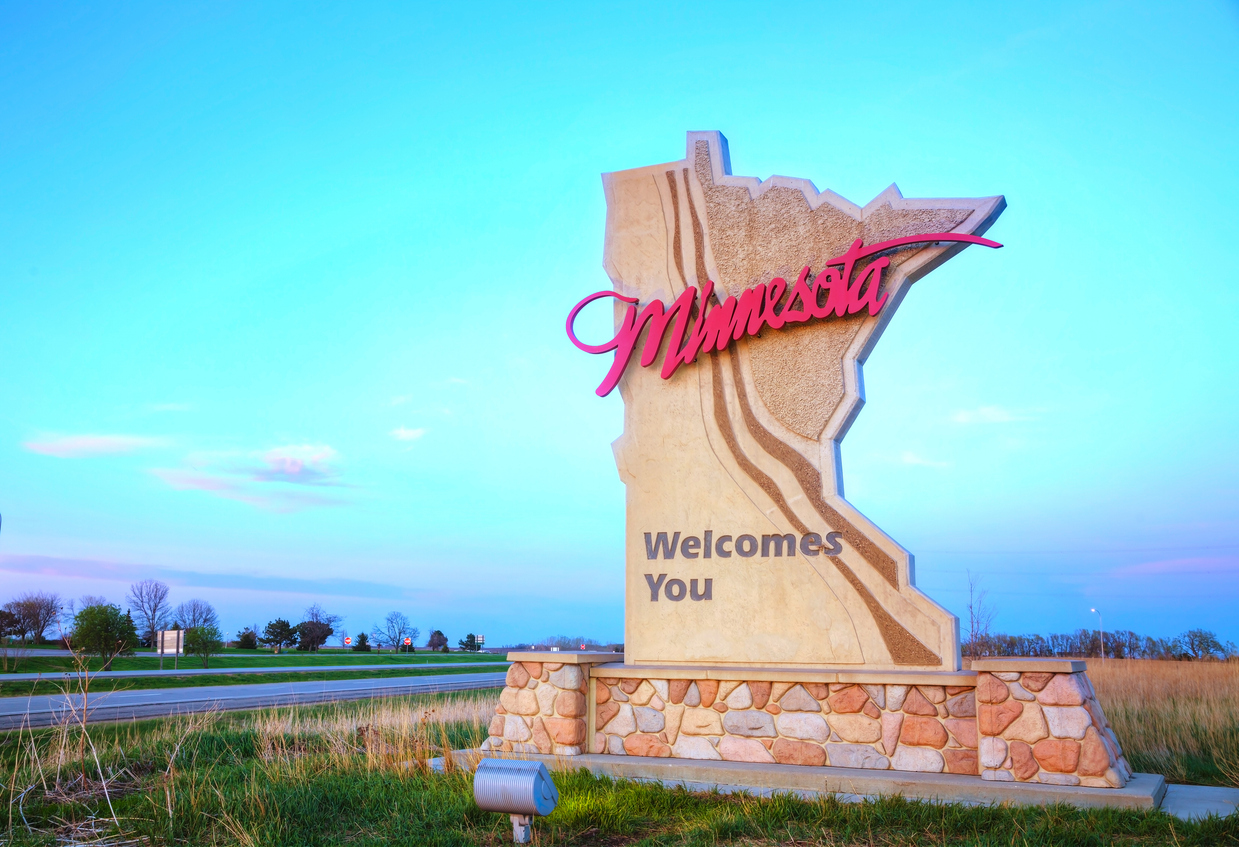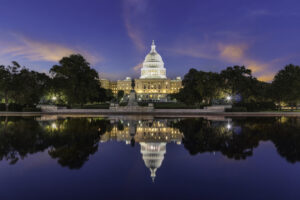The Scoop: The fight to define Tim Walz
Plus: How the Google antitrust ruling could reshape the internet; Musk sues former advertisers.

Kamala Harris has named her vice president pick after a fast, whirlwind vetting process. Shortly after announcing that Tim Walz, the Democratic governor from Minnesota, would be her top lieutenant, she shared a video of her breaking the news to the camo-hat clad former teacher.
When I called @Tim_Walz this morning to ask him to join our campaign, I shared my deep level of respect for him and the work we’ve done together.
We’re going to unify this country and we’re going to win.
Let’s go get this done. pic.twitter.com/EcqZ497lyk
— Kamala Harris (@KamalaHarris) August 6, 2024
Politico called the recorded calls her “signature style,” nodding back to the famous video she shared of herself calling President Joe Biden to say, “We did it, Joe,” after they were named the victors in the 2020 election.
While it’s clear the call wasn’t completely candid – Walz was also filmed at his Minnesota home – it does give a nod to authenticity and intimacy that voters could share in.
And so far, it’s been a success. The hat he wore has become a campaign item, now emblazoned with the “Harris Walz 2024” logo. And that’s part of the folksy yet feisty charm the Harris campaign hopes he can bring to the ticket. The New York Times called him “a battleground strategy dressed in Carhartt.” Politico dubbed him “comfort food.”
But his political opponents are painting him as a dangerous choice. “He’ll unleash HELL ON EARTH and open our borders to the worst criminals imaginable,” the Donald Trump campaign yelled in a fundraising email. This apocalyptic vision could be a tough sell, given Walz’s dad vibes in videos with his daughter at the Minnesota State Fair or giving advice on headlight repair. Perhaps more successful attack lines center around Walz’s record, including his actions during the 2020 riots in Minneapolis and painting him as far left.
Why it matters:
For now, the battle over who Walz is largely unwritten. A YouGov survey released Tuesday night revealed that 35% of Americans found Walz to be either the best pick for Harris or a good pick, 16% thought he was a bad pick and 35% just didn’t know.
The question is, will Walz’s persona be driven more from the Harris camp – or by his opponents? In many ways, his rival J.D. Vance has had his public image driven by Democrats’ sharp use of opposition research, including Walz’s own coining of the term “weird,” leading to Vance’s status as a historically unpopular VP candidate.
For now, Walz will likely keep his role as a jovial attack dog, continuing to push the “weird” attack line even as he serves a bridge between Harris’ California roots and the more rural, purple parts of the country that the Democratic party must hold if they are to keep the White House.
Editor’s Top Reads:
- Earlier this week, a federal judge ruled that Google holds a monopoly on search and acted in anticompetitive ways to maintain that monopoly, including through exclusive licensing agreements, such as its deal with Apple for search on iPhones. While Google will appeal the ruling, if it stands, it could reshape the internet in ways big and small. Washington Post tech columnist Shira Ovide imagines a future where the breakup of Google leads to increased competition, more customized, bespoke search engines, a decrease in tracking cookies, and maybe even lower prices on ads. Any such changes are likely years down the road, after lengthy appeals that could go all the way to the Supreme Court. But a post-Google world would be a seismic shift for both marketers and PR professionals – and it’s time to start considering the possibilities.
- In a move that’s unlikely to attract more advertisers, Elon Musk’s X is filing its own antitrust lawsuit, targeting both the Global Alliance for Responsible Media as well as several members of that coalition, including Mars and Unilever. X claims that an advertising boycott by the group’s members amounts to a “coercive exercise of market power.” Musk posted on X that, “We tried peace for 2 years, now it is war.” Law professors who spoke with the Wall Street Journal were skeptical the case would succeed, since the actions of the alliance were intended to distance themselves from policies they did not agree with rather than to suppress competition, which is what antitrust laws are designed to prevent. Still, the lawsuit will be expensive, protracted and could result in damaging discovery. But this “advertise with us or else” attitude that has defined the Musk era of X should serve as a reminder of just how unpredictable using the platform can be now – and of how quickly one can turn from a friend to a foe in Musk’s eyes.
- Delta faces mixed reviews from its handling of the fallout of its disastrous travel meltdown started by the CrowdStrike outage but stretching on days past when other airlines had solved the problem. Customers are currently attempting to get reimbursed for other expenses related to the outage, including hotel costs, rental cars and alternate airline tickets. In one case, a customer who had to rent a car and drive 20 hours straight were offered only $50 from the airline, so the customer filed a DOT complaint, the Wall Street Journal reported. Customer service can frequently become a cause for bad PR – this article being a case in point. The expenses from this outage are tremendous, but Delta failing to take care of customers could cause them to lose some of their most loyal customers. As the Journal put it, “How generous Delta is with individual travelers, especially frequent fliers, will go a long way in determining how quickly Delta shakes off its July problems.” How they talk about that generosity will also matter.
Allison Carter is editor-in-chief of PR Daily. Follow her on X or LinkedIn.







